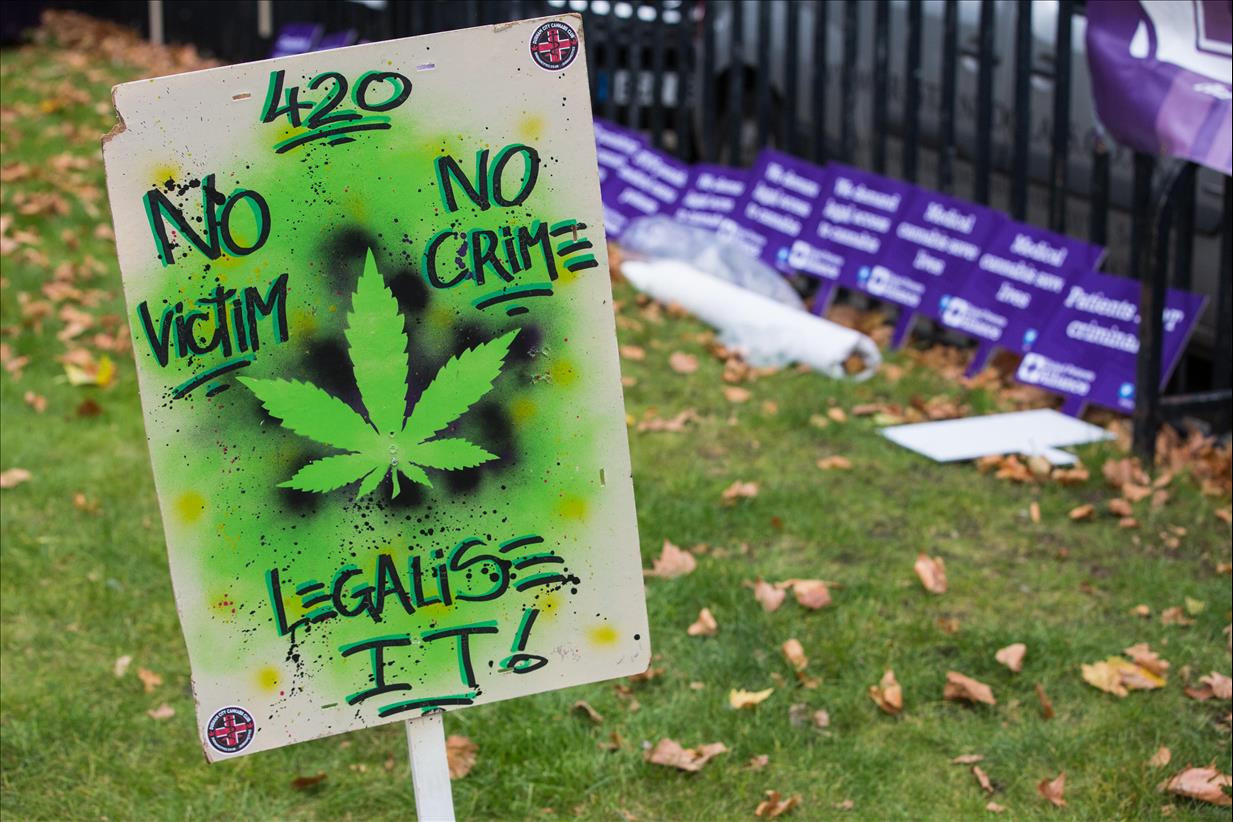Author:
Niamh Eastwood
(MENAFN- The Conversation) In Scotland, a person in possession of a class A drugs will be issued a Police warning in most cases, effectively decriminalising personal possession.
This recent announcement comes hard on the heels of a record-high 1,339 drug-related deaths in 2020. England and Wales also saw a record year of drug-related deaths .
A handful of police forces in England and Wales have adopted similar reforms, including schemes that divert people to drug education courses or treatment. While welcome, this is as far as the Scottish government or the police forces can go. The main legislation is the reserve of Westminster where the decades-old Misuse of Drugs Act remains the main blockage to real reform.
Enacted in 1971, the Misuse of Drugs Act defines the list of controlled substances in the UK, a list that has expanded over time, as well as the penalties associated with the possession and supply of each.
The act entrenched a police-driven, criminalisation-centred strategy to suppress drug use, drug supply and drug markets, all of which have grown exponentially since 1971.
A harsh legacy
The Misuse of Drugs Act has largely been a failure, and the government knows it. Successive official reports have shown criminalisation does not deter use . And, despite spending £1.6 billion a year on drug law enforcement, this approach has “little impact on the availability” of drugs.
The negative effects of UK drug laws are well documented, particularly in the way that policing practices, such as“stop and search”, are racialised . In England and Wales, black people are nine times more likely to be stopped and searched for drugs than white people, and 12 times more likely to be prosecuted for cannabis possession, despite being less likely to use drugs. Deprived areas experience more intensive drugs policing, despite drug use being ubiquitous across the different socioeconomic groups.
Prisons are overcrowded , with high levels of drug use within. The UK has the highest levels of fatal overdose in Europe, with Scotland at the top of this tragic league table, and England and Wales in third position. These are just a handful of the effects of trying to arrest our way out of“the drug problem”.

Activists have long called for the legalisation and decriminalisation of recreational cannabis. Mark Kerrison / Alamy Stock Photo Recent research by the charity Release found that even the COVID lockdowns had little effect on the UK drug supply. If drug markets remained stable, even with a total shutdown of the country and a massive disruption in international travel and trade, it's hard to imagine how even the most punitive application of the act could do so.
Alternative approach
Despite evidence that criminalisation doesn't achieve a reduction in drug use and drug markets, the 1971 Misuse of Drugs Act continues to stand as the unquestioned basis of UK drug policy for the two main parties in Westminster.
This is because the“war on drugs” was never about drugs. It was, and continues to be, about social control, particularly of poor and racialised communities that governments view as“problematic”. As author and law lecturer Kojo Koram writes, international drug control since the 19th century has been deeply intertwined with the European colonial project and the desire to control indigenous and colonised populations. It should come as no surprise then that domestic drug laws have a similar dynamic.
The UK government's well-publicised focus on targeting“middle-class drugs users” is a good illustration of this, and stands as a tacit admission that drug laws have never been evenly applied, and have instead targeted poor communities and ethnic minorities.
In keeping with the twisted logic of prohibition, the proposed solution to racist and discriminatory drug laws is not to remove or reform those laws, but rather to widen the net to target more people. This is not just a perverted notion of promoting equality in the law, but dishonestly shields the law from scrutiny by suggesting the driver of racialised drug policing and drug-related deaths are middle-class users, not the law itself.
While legislative reform is not within the Scottish government's gift, it does follow, as much a possible, the evidence of the 30-plus countries around the world that have ended criminal sanctions for possession of drugs. None experienced increased rates in drug use, many experienced better health and social outcomes, including lower rates of drug-related death – not solely because of the legal landscape, but also because they invested in evidence-based harm reduction, drug treatment and social welfare services .
The drug-related death crisis is not only a Scottish problem but one for politicians across all four nations. True decriminalisation of people who use drugs, the regulation of drug markets in a way that includes communities who rely on the illicit economy to survive, and broader economic and social reforms that address inequality would be elements of a truly new and evidence-based drug strategy. If the government wants to save lives, it must reform our harmful laws, beginning with the Misuse of Drugs Act.

MENAFN06102021000199003603ID1102927896
Legal Disclaimer:
MENAFN provides the information “as is” without warranty of any kind. We do not accept any responsibility or liability for the accuracy, content, images, videos, licenses, completeness, legality, or reliability of the information contained in this article. If you have any complaints or copyright issues related to this article, kindly contact the provider above.